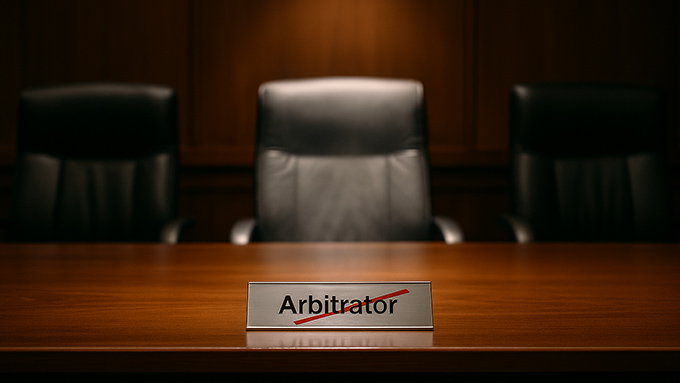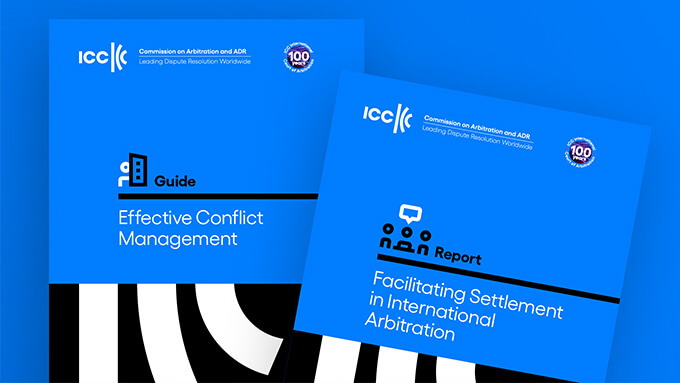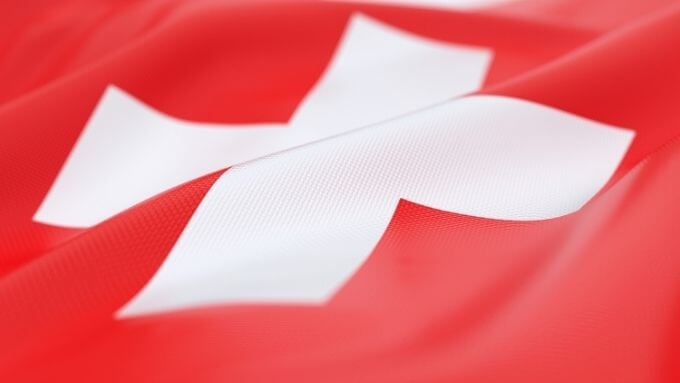ICC Report on Emergency Arbitrator Proceedings
Introduction
On the ICC Turkey Arbitration Day, one of the topics discussed was the ICC Report on the Emergency Arbitrator Proceedings. As known, in April 2019 the ICC Commission on Arbitration and ADR Task Force on Emergency Arbitrator Proceedings published a report (“Report”).[1]
The Report analyses all aspects, including procedural and substantive issues that may arise in emergency arbitrator (“EA”) proceedings and is aimed at facilitating the use of EA proceedings through increased transparency and predictability.
The Report contains statistics, some of which are stated, below. By 30 April 2018, 80 ICC Applications for Emergency Measures had been filed; therefore the numbers below relate to these applications:[2]
- Relief has been granted in only 23 of the ICC EA applications, and in only eight of these cases has the EA fully granted the requested relief;[3]
- Twenty-one EA applications were rejected in whole or in part on threshold grounds;[4]
- Three of these EA applications were rejected in whole or in part by the President of the ICC International Court of Arbitration as part of the President’s “applicability” test;[5]
- Threshold issues were at the core of 56 of the first 80 ICC EA cases;[6] and
- Twenty-five cases settled on their merits before the issuance of any final award, among which four settled before any order was ever issued.[7]
Content
The report deals with the following four topics; (i) general issues, (ii) threshold issues, (iii) procedural matters and (iv) substantive standards.
In the context of EA proceedings, it is important to note that there is no universal application, nor can one draw general rules.[8] As discussed in the Report, this is maınly due to the degree of discretion and flexibility that the ICC Arbitration Rules (“ICC Rules”)[9] leave to the EA.
It appears that the EAs strictly apply particular threshold requirements set by the EA provisions. These threshold issues are applicability, jurisdiction and admissibility, and are dealt with in Section B of the Report. The number of cases that involve these thresholds reflects their importance. After examining these three threshold issues, the EA will go forward with analysing the merits as to the urgency of the relief sought.
These mentioned thresholds are summarised below:
Applicability of the ICC Rules
This prong is referred to as the “applicability test” of the EA provisions. The President of the ICC Court shall consider the information available in the application and decide whether the EA provisions apply with reference to Articles 29(5) and 29(6) of the ICC Rules. The President rarely exercises his power to reject applications, and mostly allows applications to proceed with the EA’s final determination on threshold issues.
Jurisdiction of the EA
The EA shall be entitled to determine whether it has jurisdiction to order emergency measures. The “jurisdictional test” should also include whether an arbitration agreement exists.
Multi-tiered dispute resolution clauses are of particular importance since many jurisdictional challenges have been raised within this context. There have been 33 cases in which the EA’s jurisdiction was contested.[10]
Admissibility of the Application
The “admissibility test” would refer to the need of “urgent interim or conservatory measure that cannot await the constitution of an arbitral tribunal.” This is also the requirement foreseen in Article 29(1) of the ICC Rules.
The EA provisions do not explicitly mention the law applicable to threshold issues.[11] In most cases, the EAs do not consider themselves bound by the lex contractus but rather conduct their determination with the guidance of the relevant national law and/or the lex arbitri.
Section C of the Report deals with procedural matters. This section discusses the EA proceedings from the transmission of the file to the EA until the rendering of the order.
Pursuant to Article 5(2) of Appendix V to the ICC Rules, the EA may conduct the proceedings in the manner in which the EA considers to be appropriate. This provision clearly gives the EAs wide discretion. The most important restriction in this context relates to the time limit foreseen in the ICC Rules. Unless an extension of time has been granted, the EA should render a decision within 15 days of transmission of the file.
In section D of the Report, the substantive standards the EA’s may consider have been examined. The substantive criteria for granting emergency relief that an EA may consider may be listed as urgency, likelihood of the success on the merits, risk of irreparable harm, risk of aggravation of the dispute and proportionality of the measure sought.[12] Particularly, the requirement related to urgency is a high standard. These criteria should be familiar to parties as they are usually required under national laws as well. Additionally, it is noted that EAs also regard secondary considerations such as whether security should be provided pursuant to Article 28 of the ICC Rules or simply whether the relief sought is appropriate.[13]
Conclusion
It is also important to note that ex parte emergency orders are incompatible with the ICC EA provisions on the grounds that the respondent does not have the opportunity to be heard.[14] Therefore, in such cases, the only viable option is applying to state courts.
Parties should also consider the enforcement of the EA’s decision, which is still problematic.[15] This topic is covered in Section IV of the Report.
The Report provides useful guidance for all parties and should be examined by applicants prior to making an application for an interim measure. It further provides possible solutions to certain problems that have been identified by the contributors.
[1] For the full report, please see: https://iccwbo.org/publication/emergency-arbitrator-proceedings-icc-arbitration-and-adr-commission-report/ (Accessed: February 2020).
[2] Please see para 3 of the Report. Approximately 40 more applications have been filed after the Report was published.
[3] Please see Section G of Annex I of the Report.
[4] Please see para 9, 87 et seq. of the Report.
[5] Please see paras 9 and 71 of the Report.
[6] Please see paras 9 and 62 of the Report.
[7] Please see para 59 of the Report.
[8] Please see para 7 of the Report.
[9] Işık, Fatih,The New Emergency Arbitrator Procedure Under The ICC 2012 Rules, Erdem&Erdem Newsletter, June, 2013http://www.erdem-erdem.av.tr/publications/law-post/the-new-emergency-arbitrator-procedure-under-the-icc-2012-rules/
[10] Please see para 79 of the Report.
[11] Please see para 89 et seq. of the Report.
[12] Please see para 151 et seq. of the Report.
[13] Please see para 34 of the Report.
[14] This is the finding of the Task Force in para 24 of the Report.
[15] Except for Hong Kong, New Zealand, and Singpore, where national law expressly provides for the enforcement of EA orders, Please see para 36 of the Report.
All rights of this article are reserved. This article may not be used, reproduced, copied, published, distributed, or otherwise disseminated without quotation or Erdem & Erdem Law Firm's written consent. Any content created without citing the resource or Erdem & Erdem Law Firm’s written consent is regularly tracked, and legal action will be taken in case of violation.
Other Contents

Emergency arbitration addresses the need for interim protection before the arbitral tribunal is constituted in institutional arbitrations. Arbitral institutions establish short timeframes to ensure parties can obtain interim relief quickly. For example, the International Chamber of Commerce (“ICC”) requires that the emergency...

International arbitration remains the preferred mechanism for resolving complex cross-border disputes. Yet despite its advantages—neutrality, enforceability, flexibility—arbitration is frequently criticized for being too slow, too expensive, and too procedurally heavy. Often, parties proceed through hearings and...

For arbitral awards rendered in international commercial arbitration to produce legal effects in foreign jurisdictions, they must be subjected to proceedings for “recognition” and “enforcement.” This process is governed by the New York Convention as well as by the provisions of the Law on Private International Law...

Arbitrability, the determination of whether a specific subject matter can be resolved through arbitration, constitutes a fundamental aspect of arbitration within the scope of international commercial dispute resolution. This concept draws a delicate balance between party autonomy—a fundamental principle of arbitration...

The recognition, enforcement, and annulment of foreign court and arbitral awards in Türkiye are processes in which public policy emerges as one of the most critical criteria for review, both in theory and in practice. The Court of Cassation decisions determine the direction of case law regarding the scope and...

As is well known, the action for annulment of objection is a special type of lawsuit regulated under Article 67 of the Turkish Execution and Bankruptcy Law No. 2004 (“EBL”). The primary objective of this action is to nullify a debtor’s objection to execution proceedings. Despite its procedural function of facilitating...

On 16 December 2024, the London Court of International Arbitration (“LCIA”) released its third batch of challenge decisions covering the period from 22 July 2017 to 31 December 2022. The LCIA has also issued a detailed commentary that identifies key legal themes and analytical trends, offering practitioners...

The International Chamber of Commerce (“ICC”) has published its report on the dispute resolution statistics for 2023 (“Report”) , shedding light on the evolving landscape of international arbitration...

Syndicated loans undoubtedly hold a significant position among global financing models. In 2023 alone, 3,655 syndicated loans were provided to companies in the US, with their total value reaching USD 2.4 trillion...

Preliminary attachment refers to the temporary seizure of a debtor's assets to secure a creditor's claim. While it serves as a vital instrument for safeguarding the rights of creditors, it is subject to specific and stringent conditions under Turkish law to prevent any potential misuse...

One of the most important reasons for parties to choose arbitration is the opportunity to freely choose their arbitrators. This freedom granted to the parties also distinguishes arbitration from proceedings before state courts, where the parties are deprived of the power to determine the judges who will conduct the...

The 6th Civil Chamber of the Court of Cassation ruled on October 12, 2022, that national courts have jurisdiction over objections to provisional measures in international arbitration disputes...

The declaration of intent to resolve disputes through arbitration is the fundamental constituent element of an arbitration agreement. To speak of a valid arbitration agreement, the parties' intention to arbitrate must emerge in a way that leaves no room for dispute...

In the wake of the evolving dynamics of commercial transactions, the Netherlands Arbitration Institute Foundation (NAI) announced new arbitration rules . 2024 NAI Arbitration Rules are in force as of 1 March 2024 and will be applicable on proceedings filed on or after this date...

With the global shift to online activities, domain names play a crucial role in identifying businesses. It is more common than ever for a domain name to be registered that is confusingly similar to a trademark or service mark...

The ICC Commission on Arbitration and ADR (“Commission”) published a new guide and report with the aim to increase awareness on alternative dispute resolution (“ADR”) mechanisms to prevent disputes and strengthen the relationship between all stakeholders.The Guide on Effective Conflict Management...

Mergers and Acquisitions (“M&A”) are restructuring of companies or assets through various types of financial transactions, such as mergers, acquisitions, purchase of assets, or management acquisitions. This Newsletter article covers M&A disputes being solved before arbitral tribunals.

In the context of arbitration practice, the principle of revision au fond means that the courts can not examine the merits of a dispute when reviewing an arbitral award. This principle is most commonly encountered in set aside and enforcement proceedings. An arbitral award is evidence of the parties’ willingness...

Under Turkish law, parties may agree on the settlement of disputes that have arisen or may arise, regarding the rights that they can freely dispose of, by arbitration. However, disputes which are not subject to the will of parties, such as the disputes relating to in rem rights of immovables, bankruptcy law...

On 4 September 2020, a research project “Does a Right to a Physical Hearing Exist in International Arbitration?” was launched by an International Council for Commercial Arbitration (“ICCA”) taskforce. Due to the Covid-19 pandemic, many arbitration hearings were held online. Many institutional rules...

Dubai International Arbitration Center amended its Arbitration Rules on 25 February 2022. The 2022 Arbitration Rules were published on 2 March 2022 and came into effect on 21 March 2022. The Rules will be applied to arbitrations that are filed after 21 March 2022; unless parties agree otherwise...

In the aftermath of the Achmea decision, controversies on intra-EU arbitrations continue. Most recently, the Paris Court of Appeal has annulled two arbitral awards rendered against Poland. Meanwhile, the Higher Regional Court of Berlin has refused to declare that an Irish investor’s ICSID claim...


Under Turkish law, the legal remedy that can be applied against arbitral awards is an annulment action. Law on International Arbitration No. 4686 (“IAL”) finds its application area in arbitration proceedings where Turkey is the place of arbitration...

It is well known that following a decision of the Court of Justice of the European Union, problems arose related to arbitration of intra-EU disputes, and particularly arbitration under the Energy Charter Treaty...

Arbitration in corporate law contains controversial elements in many respects, especially the issue of arbitrability. Even in legal systems where these disputes are considered to be arbitrable, uncertainties remain on whether an arbitration clause can be included in the articles of...





Arbitration has benifited from a great increase in the use of technology which has directly effected the conduct of proceedings. More particularly, with digitalization, the way that we conduct arbitration proceedings has been changed to reflect the current needs of parties, with an aim of increasing time...
































































